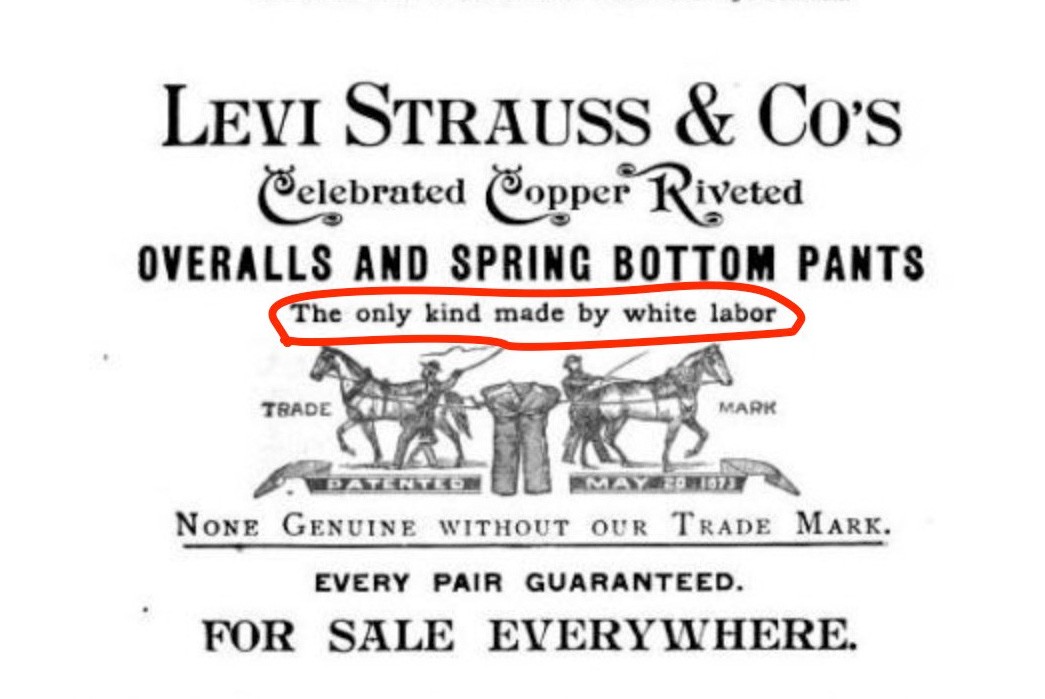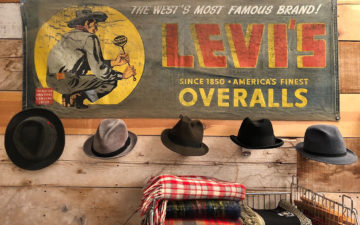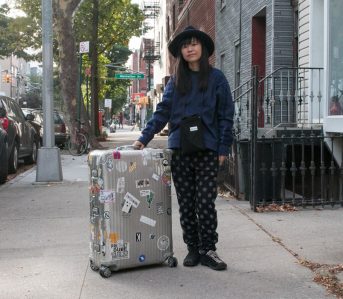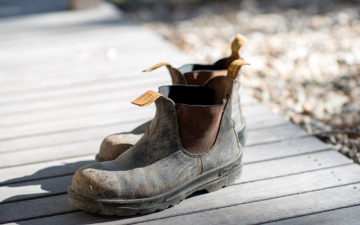Unfun denim fact: one of Levi’s earliest slogans was “The only kind made by white labor.”
I first saw reference to this in Michael Allen Harris’s book Jeans of the Old West, which dates the ad to sometime in the late 1870s to early 1880s. This was when the United States was in a period of economic decline called “The Long Depression.” Thousands of Americans moved west in search of work and ended up in Levi’s hometown of San Francisco…where there weren’t any jobs either.
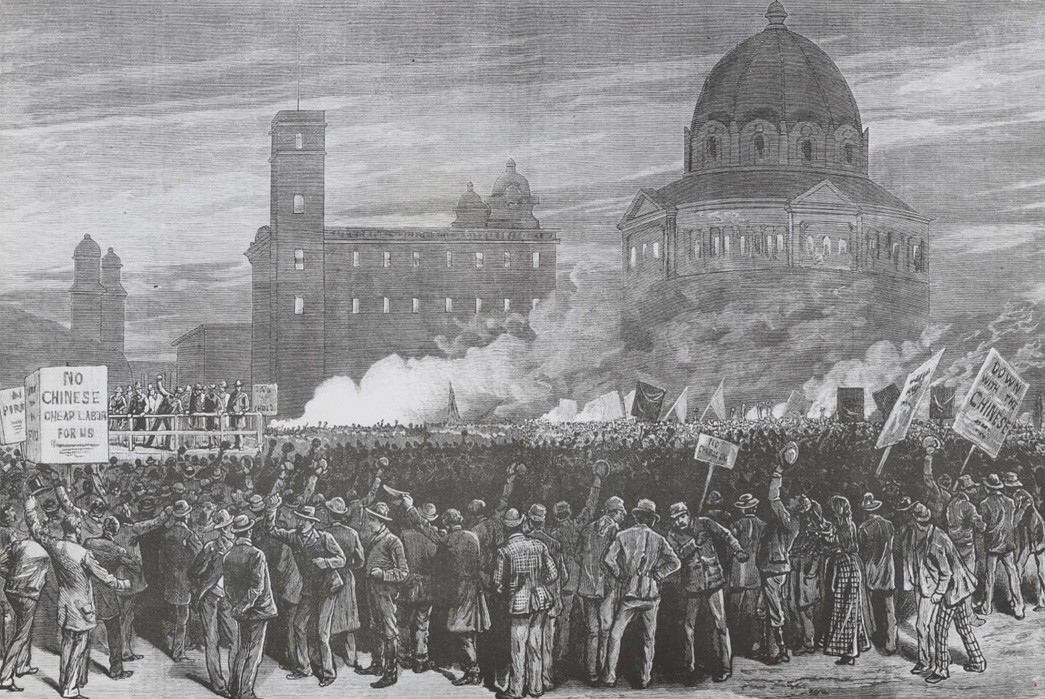
The “San Francisco Riot of 1877” illustration that originally appeared in Frank Leslie’s Illustrated Newspaper.
Unemployment in San Francisco in the late 1870s was over 20% (for reference, it peaked at 12.1% in the early part of the Covid pandemic). And like clockwork, white Americans blamed immigrants for their own inability to find work. In July of 1877, a mob of white people stormed San Francisco’s Chinatown to destroy Chinese owned businesses. The mob killed four Chinese-Americans and caused the equivalent of $2.5 million dollars in property damage in what became known as the Chinatown Riots.
The riots only galvanized anti-Chinese racism, with many businesses refusing to hire non-white workers. Jeans of the Old West references records that Levi’s employed 180 Chinese and only 38 non-Chinese workers in 1876 but after the riots in 1877 they only employed white workers. But this anti-Chinese sentiment was much bigger than just Levi’s, these kinds of riots took place in almost every city in the country with a Chinese population.
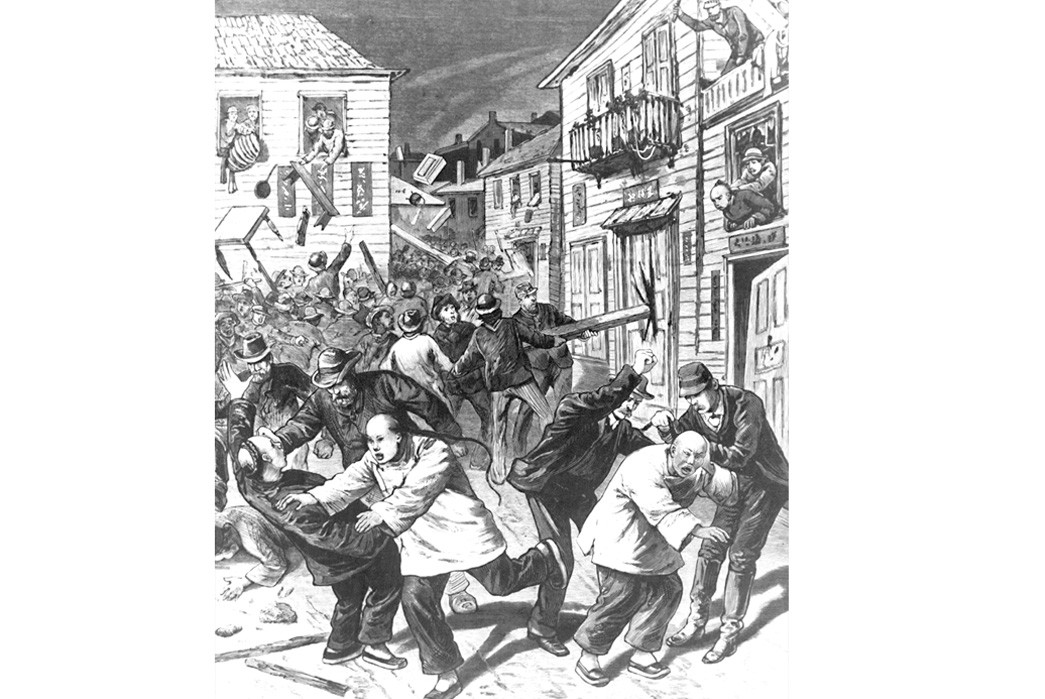
Illustration of rioters assaulting Chinese men during Denver, Colorado’s Chinatown Riot of October 1880.
This all culminated in 1882, when Congress passed the not-even-hiding-it Chinese Exclusion Act, which prohibited all immigration to the US from China. The Exclusion Act was in place from then until 1943, when the government began a quota system that allowed only 105 Chinese immigrants annually.
Levi’s as of 2014, however, works with three pages worth of factories in China. Racism has roots everywhere, even in our pants.
If you want to learn more about denim from this time period, check out our Denim History podcast series where we go into much greater depth.

